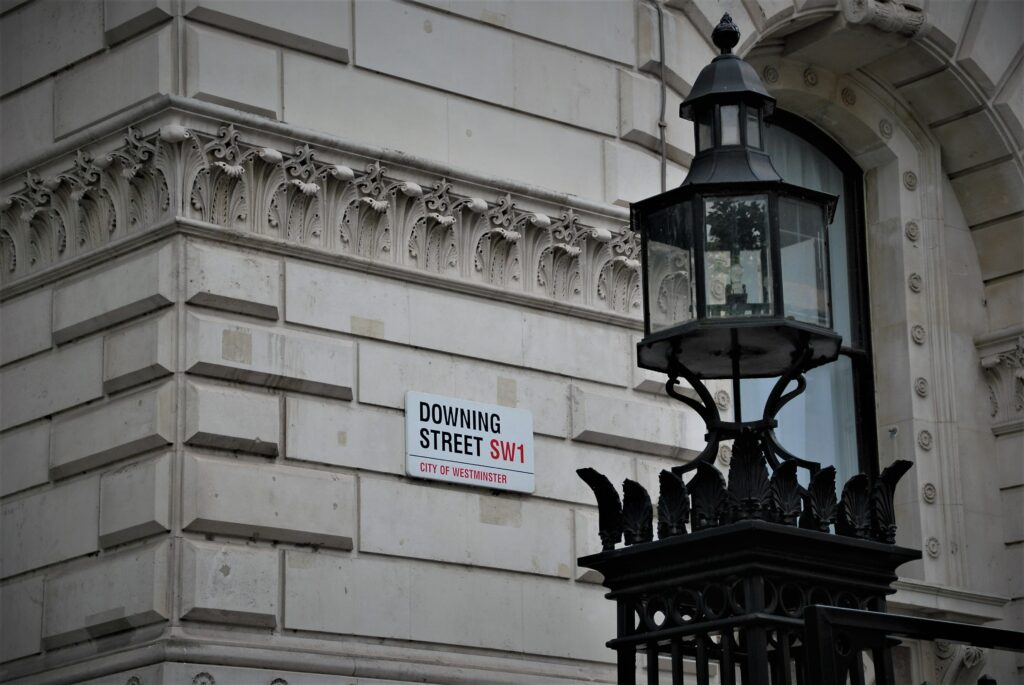The Product Security and Telecommunications Infrastructure Bill (PSTI Bill) is awaiting a date for its final stage in the House of Lords. This Bill is the latest in a long line of attempts by the Government to speed up the rollout of digital infrastructure across the UK and to correct previous reforms which have disrupted the market.

As many business groups, commentators, and the Government itself have concluded, infrastructure delivery must be at the heart of any strategy to level up the UK. But with the race for PM in full swing, and as the candidates seek to establish a coherent framework of policies and guiding principles for the next iteration of Conservatism, how should this Bill be viewed?
One of the largest barriers to broadband rollout is issues surrounding what are known as ‘wayleave agreements’, commercial agreements between a landowner and an internet service provider (ISP) to use the land for the equipment needed to provide broadband services elsewhere, for a price. This area has had a chequered past, and the 2017 reforms to the Electronic Communications Code (ECC) created significant backlogs and communication breakdowns between the parties.
The PSTI Bill seeks to rectify these issues, by allowing access to sites for ISPs in cases of unresponsive landlords, and introducing measures to speed up agreements. Yet this Bill, which will rebalance wayleaves agreements towards the delivery of broadband for all and away from landowners’ bottom lines, has been heavily criticised by some commentators.
A recent report by the IEA recommends a return to the pre-2017 ECC reforms, and a re-emphasis on unregulated market forces for wayleaves. The IEA fully agrees that the Bill is “almost certain” to speed the delivery of this critical part of our national infrastructure. But their concern is that this would go too far in forcing the hand of landowners. There is an analysis of this in the context of Levelling Up, but the concern is really more fundamental, and ancient, and that is the extent to which public good should be allowed to force the hand of private rights.
It will be crucial to see whether either of the leadership candidates, with their need to appeal to their base (quite often site owners in rural areas), adopt this approach to gigabit roll out. Yet this argument undervalues many aspects of the bigger picture.
One crucial part of the Bill is the opportunities it presents for the continued growth of Alternative Network Providers (Altnets), and the central role these play in delivering the ‘Levelling Up Agenda’.
Altnets are smaller ISPs, often market disruptors, who provide broadband services to localised areas by building their own infrastructure network. These networks are typically located in more hard-to-reach areas, outside the commercial footprint of £multi-billion providers.
However, that these SMEs are often delivering broadband in areas that are typically rural, previously untouched by digital infrastructure, has compounded the difficulties in securing wayleave agreements. These smaller Altnets are less equipped to meet high rent demands from larger landowners, condemning the towns and villages such infrastructure would have served to continued digital poverty.

No one is arguing landowners should not be compensated, nor that there should be appropriate rights of redress, and in practice, the answer will only come from co-operation across the vast majority of sites. The legal framework must, however, deal properly with occasions where the price demanded for co-operation is simply too high, and does not take into account the needs and interests of remote communities in need of modern broadband.
Those needs and interests are vast. A recent study of broadband delivery in Cornwall by the policy-institute, Curia, documents a £615 million economic return for the economy, supporting small business and driving investment to the area. This is levelling up in action, and will be crucial to the Government’s ambitious connectivity targets of nationwide gigabit coverage by 2030, enshrined in the recently published Levelling Up White Paper.
So the answer is increasing competition (also enshrined in Ofcom’s code of practice), supporting small businesses, and delivering investment to areas previously untouched by Government support. Yet as levelling up hangs in the balance and party leadership candidates consider whether this mission can adapt to their interpretation of the Conservatives canon, it is vital that the PSTI Bill does not become a relic of a previous regime. In our view, the delivery of gigabit broadband at pace and the PSTI which will do that is as much at the heart of modern conservatism as anything else.
The prospect of a life without broadband is inconceivable to many, yet this remains the reality for thousands of people up and down the country, according to Ofcom’s recent Connected Nations report. Regardless of the fate of ‘levelling up’, the delivery of digital infrastructure and putting the PSTI Bill into force should remain at the forefront of any government’s agenda.
As such, this mechanism for delivering gigabit broadband at pace should be central to Conservative principles and the next administration’s vision for the UK economy’s growth.

Jemma Offley | Senior Account Manager

James Martin | Director of Public Affairs


